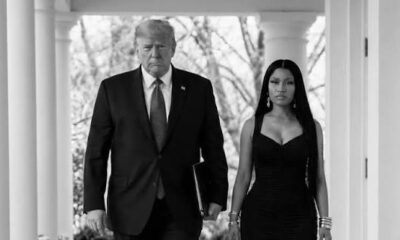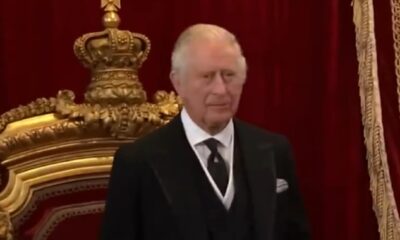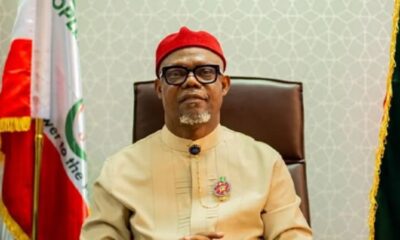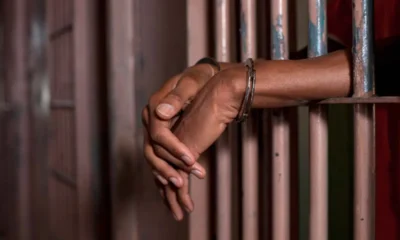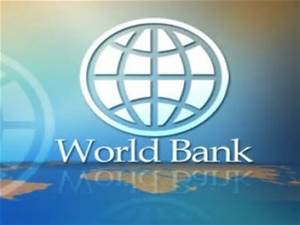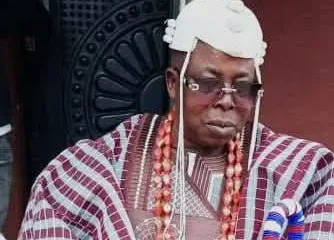Business
Adedoyin Debunks NDIC’s Report On Failure Of Defunct City Express Bank
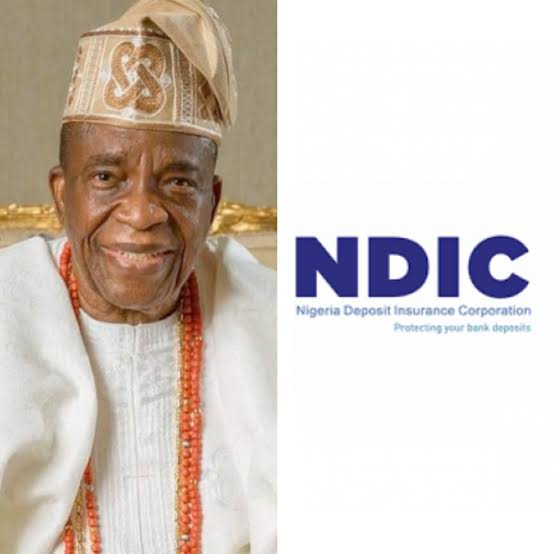
Billionaire industrialist and former Chairman of the defunct City Express Bank, Prince (Dr.) Samuel Adedoyin, has strongly debunked what he described as a false, biased, and defamatory publication by the Nigeria Deposit Insurance Corporation (NDIC) title
“Failure of City Express Bank.”
In a statement issued through his solicitor, A. O. Akinrimisi of Fagrame Firm of Barristers and Solicitors, Adedoyin rejected the report, describing it as inaccurate, incomplete, and misleading, and accused the NDIC of failing to take responsibility for its own lapses as a regulatory body.
“The publication on NDIC’s website does not reflect events that transpired since the bank’s takeover, nor recent revelations which have fundamentally cast doubt on the unproven allegations stated in the said publication,” the statement read.
Adedoyin dismissed NDIC’s claim that the management of the defunct City Express Bank engaged in financial misreporting or under-provisioning for risk assets, insisting that both the Central Bank of Nigeria (CBN) and NDIC conducted regular examinations of the bank without any findings of fraud, recklessness, or misreporting.
“If there was any manipulation of prudential returns as alleged, and same was not detected during those periodic examinations, it suggests either collusion by regulatory officials or gross incompetence in the discharge of their duties,” he argued.
He faulted NDIC for what he called a one-sided and self-exonerating account of the bank’s collapse, stressing that the corporation must share in the blame for regulatory failures that led to the distress of several banks in Nigeria.
On Ownership Structure
Adedoyin also rejected NDIC’s assertion that the defunct bank was run like a “family business,” emphasizing that the CBN duly approved the ownership structure prior to granting a banking license.
“Without CBN’s approval, no bank can operate in Nigeria. The ownership structure was fully disclosed, examined, and approved — and repeatedly reflected in NDIC’s own reports,” the statement noted.
He added that, at the time, there was no law prohibiting family members from serving on the board of a bank, arguing that NDIC and CBN cannot now disown what they earlier approved.
“If there was any irregularity, both regulators are equally culpable for allowing it under their watch,” he maintained.
On Corporate Governance Allegations
Responding to NDIC’s claims of poor corporate governance, Adedoyin clarified that the issue of his chairmanship of the Board Credit Committee (BCC) was raised in a 2004 examination report but was immediately corrected.
“A report of this magnitude ought to present facts accurately. The NDIC exaggerated the issue and failed to show how my temporary chairmanship of the committee led to the bank’s collapse,” he said.
Adedoyin also condemned what he described as bias and selective persecution, accusing NDIC of singling him and the former managing director out for blame, contrary to the collective responsibility of the board.
On the Disputed N2.3 Billion Debt
Referencing Suit No. FHC/L/CS/87/2006, Adedoyin stated that the court had struck out NDIC’s case for failure to prove the alleged N2.3 billion debt. He said that despite several meetings requesting NDIC to substantiate the figures, the corporation had failed to provide evidence to date.
“This shows that the figures NDIC has paraded are spurious, manipulated, and false,” he said, noting that the matter is currently under investigation at the office of the Attorney General of the Federation following his petition.
Adedoyin alleged that NDIC has continued to host the “discredited” report on its website despite internal revelations that cast serious doubt on its credibility.
“NDIC should, in honesty, consider the counter-report made by an insider which has negated virtually every finding of the corporation concerning me and the defunct bank,” he said.
He concluded by describing NDIC’s report as “biased, unfair, and non-credible,” insisting that it should be withdrawn from public circulation.
“An incomplete and selective report is inaccurate and misleading. NDIC has lost its vision of safeguarding banks and has instead turned itself into an undertaker,” Adedoyin added.
His solicitor has therefore formally demanded that NDIC take down the report in the interest of fairness, accountability, and public trust. (First Weekly)
-

 Celebrity Gist19 hours ago
Celebrity Gist19 hours agoI love Nicki Minaj – Donald Trump
-

 World News19 hours ago
World News19 hours agoKing Charles Breaks Silence After Arrest Of Brother, Prince Andrew, Over Misconduct Allegations
-

 News19 hours ago
News19 hours agoJUST IN: Rivers senator, Barinada Mpigi, dies at 64
-

 News4 hours ago
News4 hours agoGunmen Attack Kebbi Communities, Kill 35
-

 Metro19 hours ago
Metro19 hours agoNigerian bags 8-year jail term over $1.3m cyber fraud in US
-

 News17 hours ago
News17 hours agoNigeria’s W’Bank IDA debt hits $18.7bn
-

 News18 hours ago
News18 hours agoJUST IN: Many feared dead as terrorists storm homes, shoot indiscriminately in Kebbi communities
-

 News22 hours ago
News22 hours agoOndo Monarch Gunned Down Outside Palace



